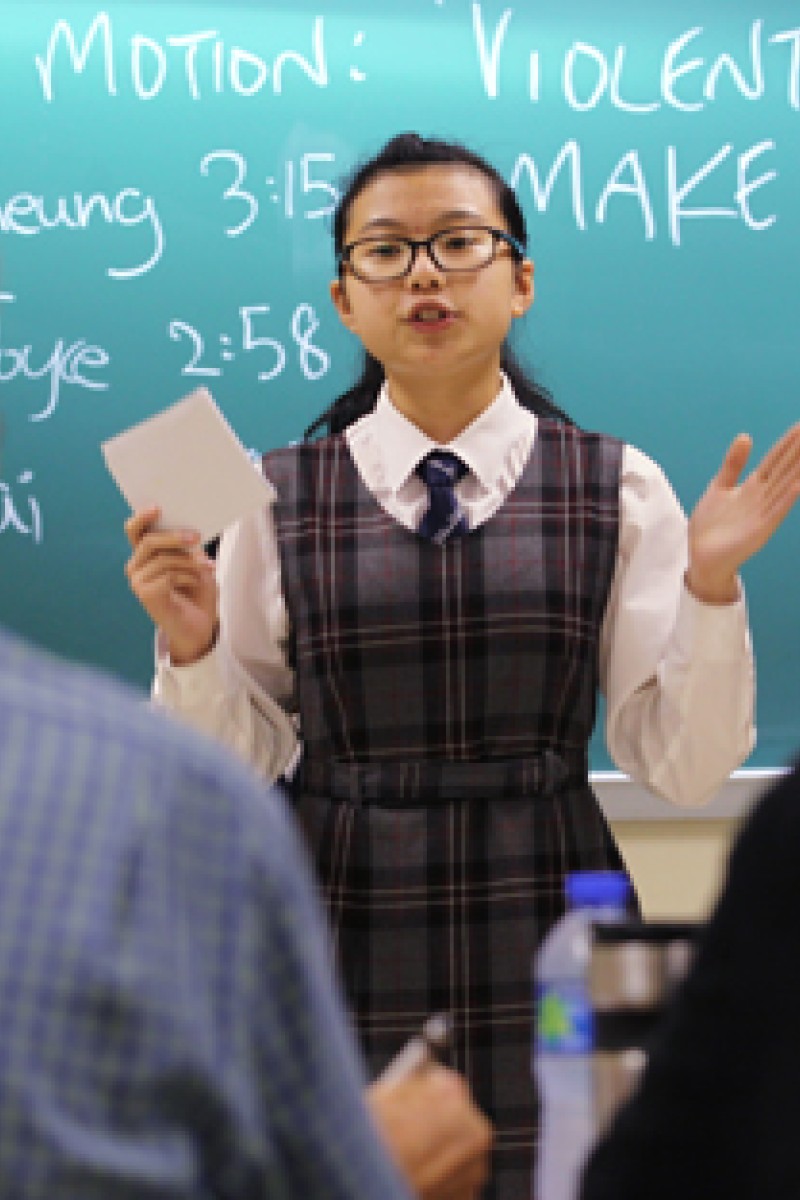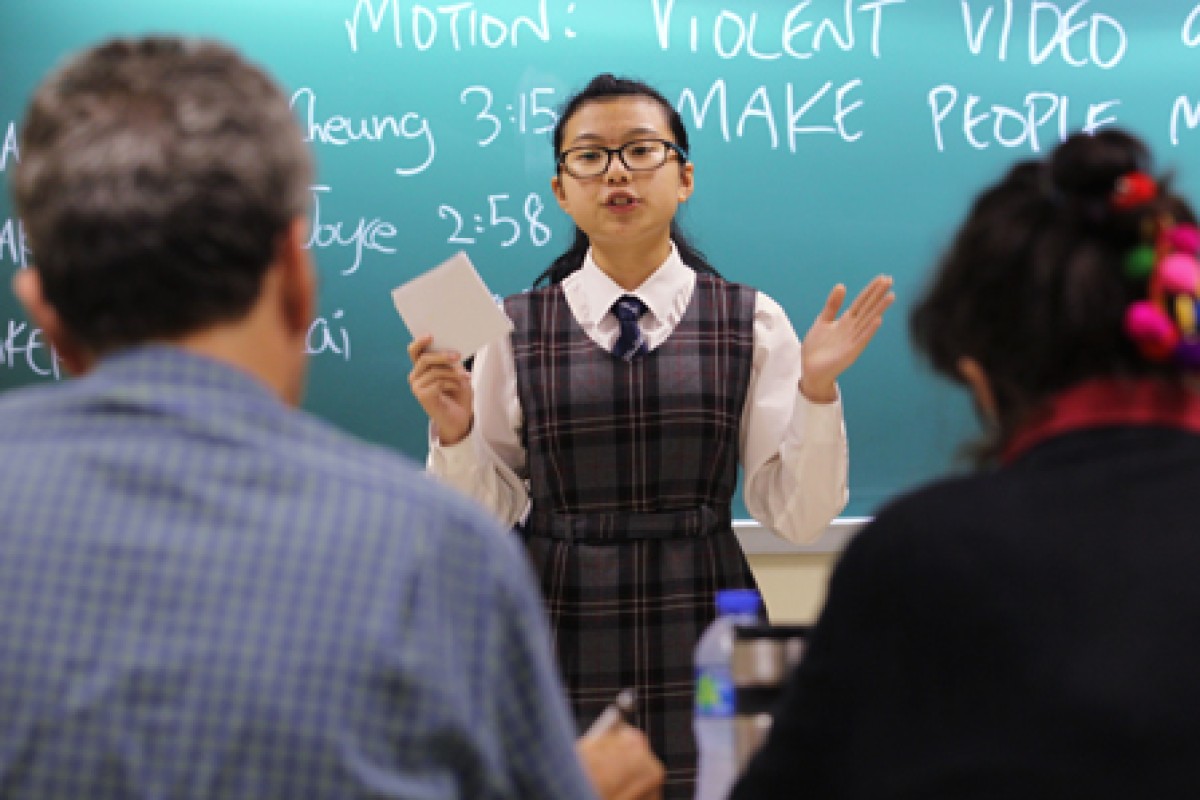
Team prove 'dramatic' in opposing motion that violent gaming increases aggressive behaviour
 Stewards Pooi Kei College's Sherry Au, named best speaker, on her way to victory.
Stewards Pooi Kei College's Sherry Au, named best speaker, on her way to victory.We have now reached the fourth round - the knock-out stage - in the 14th Nesta-SCMP debating competition.
In the latest match-up between two Sha Tin schools, the home team of Immaculate Heart of Mary College (IHMC) were eliminated by Stewards Pooi Kei College after debating the motion "Violent video games make people more violent".
IHMC's team of Form Four students - Cheung Yan-lok, Mary Joyce Austin and Janice Lai - backed the motion; Pooi Kei's team of Form Three students - Saturnia Hung Sze-long, Michelle Lo Yi-to and Sherry Au Mei-yan - opposed it.
The debate was adjudicated by Jackaline McPhie, a teacher at HK & KLN CCPA Ma Chung Sum Secondary School, and Stan Dyer, a teacher at Kwok Tak Seng Catholic Secondary School.
The debate's main talking point was whether playing violent games is directly related to being violent. The affirmative side said people tend to imitate what they see, so playing violent games turns people violent. However, the negative side challenged this, saying there was no direct link between being aggressive and playing violent video games; there were several factors, such as a person's family background, which led to violence.
This month's case of an 18-year-old, who is accused of stabbing to death his father and seriously wounding his mother, offered inspiration. Both teams used the crime to support their viewpoints. The affirmative side said the boy's reported video gaming led to his alleged violent behaviour. The negative side dismissed this, saying there were various factors that could have led to the alleged hostility, and it was unfair to blame it on game playing.
Dyer said the side opposing the motion won because they provided better evidence and had better rebuttals. "The negative team's evidence was well-researched," he said. "They did a good job challenging the affirmative argument that there is a direct link between video gaming and being violent. They also had a clear team line, and were able to reinforce this throughout the debate."
McPhie said the teams had contrasting styles. "The debaters from IHMC were calm, while the Pooi Kei team were more dramatic," she said. "The students from IHMC can learn from them how to make use of hand gestures. On the other hand, I felt debaters from Pooi Kei might have been too dramatic; their presentation would have been better if they had toned it down a little."
When using hand gestures, McPhie advised students to hold their note cards in their weaker hand and gesture with the dominant hand to make it look more natural.
Sherry, the third speaker from the team opposing the motion, was named the best speaker. "She had really good rebuttals and was clear with her delivery," Dyer said.
The contest, sponsored by The Edge Learning Centre, is organised by the Native English Speaking Teachers' Association and the South China Morning Post.